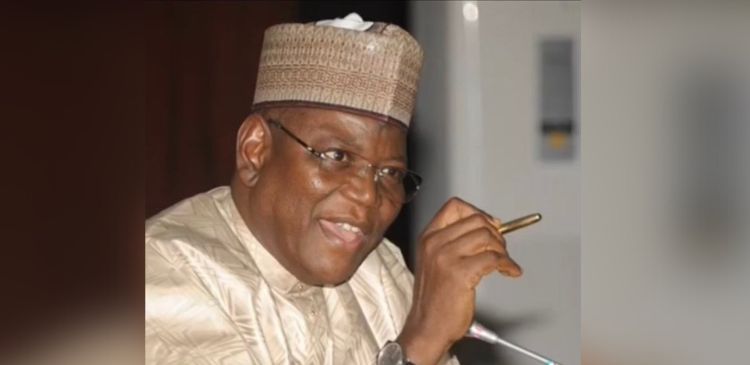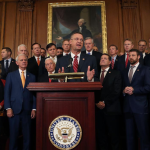The Economic and Financial Crimes Commission, EFCC has approached the Supreme Court to set aside the July 25, 2023 discharge of former governor of Jigawa State, Sule Lamido and his son, Mustapha Lamido, by the Abuja Division of the Court of Appeal.
The former Governor, his two sons, Aminu and Mustapha, Aminu Wada Abubakar and their companies, Bamaina Holdings Ltd and Speeds International Ltd are standing trial before Justice Ijeoma Ojukwu of the Federal High Court, Abuja on a 37-count amended charge of money laundering to the tune of N1.35 billion fraud.
The information which is contained in a Statement by the EFCC says Lamido allegedly abused his position as Governor between 2007 and 2015 and laundered several sums of money which he received as kickbacks from companies that were awarded contracts by Jigawa State Government under his leadership.
The trial which commenced in 2015 has seen the Commission calling over 16 witnesses before closing its case. Rather than open their defence, the defendants opted for a no-case submission, arguing that the prosecution had not placed sufficient materials before the court to warrant their defence.
MUST READ: Court Of Appeal In Abuja Discharges Sule Lamido, Others
But Justice Ojukwu threw out the no-case submission and upheld EFCC’s submission that Lamido and the other defendants has a case to answer and ordered them to open their defence. Dissatisfied, Lamido proceeded to the Appellate Court on appeal.
The appellate court had in a ruling on July 25, held that the no-case submission filed by the defendants was meritorious, struck out the charge and discharged the former Governor and his son.
However, in a notice of appeal filed at the Supreme Court and dated July 31, 2023, the EFCC is asking the apex court to set aside the whole decision of the Court of Appeal and order a return of the case to the trial court to continue and conclude same, on the grounds that the appellate court erred in Law when it discharged the respondents.
Among the four grounds of the appeal is the contention by the appellant that the Court of Appeal erred in law when it held that the case wrongly commenced in Abuja Division of the Federal High Court instead of Kano and proceeded to strike out the charge and discharge the appellants.
Contrary to the decision of the appellate court, the appellant contends that Section 98(1) of the ACJA, 2015 confers on the Chief Judge of the Federal High Court the power to transfer a case from one court to another where the transfer of the case will promote the ends of justice or will be in the interest of the public peace according to the appellant, “The record of the appeal or evidence before the court below showed that the instant case was commenced in Kano Judicial Division of the Federal High Court but was transferred to Abuja for security reasons.
The EFCC also asserts that the appellate court’s overlook of the failure of the respondents to insert the names of other parties in their Notice of Appeal was a grievous error, as Order 7 Rule 2(1) of the Court of Appeal Rules 2021 states that “all appeals shall be by way of rehearing and shall be brought by Notice of Appeal which shall set forth the grounds of appeal, the exact nature of the relief sought and the names and addresses of all parties affected by the appeal.
(Editor : Ena Agbanoma)








